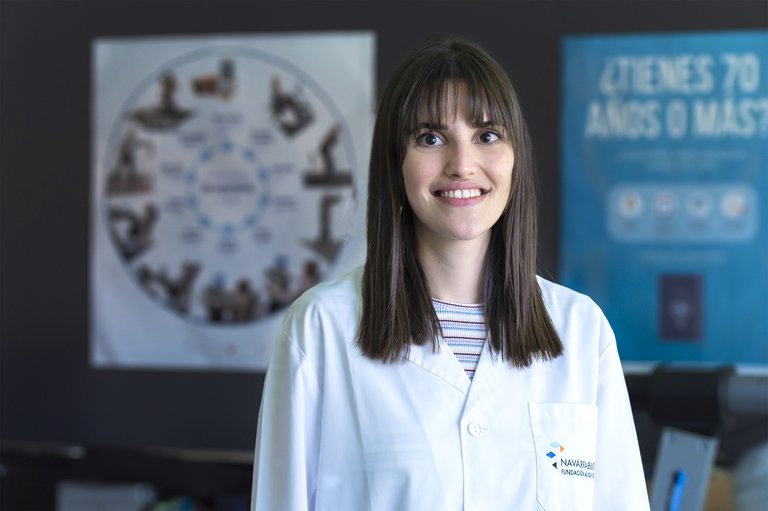"It was very gratifying to see the benefit of the exercise"

Nora García Alonso, who recently finished her doctoral thesis, talks passionately about her research: the benefits of physical exercise in patients with persistent COVID. However, when he was studying high school, he did not imagine that he would study at the university, much less that he would do a thesis. “I thought college was for smart people, and I didn’t consider myself very smart,” she confesses.
Thus, he decided to pursue a higher level of professional training in diagnostic imaging and nuclear medicine. And then he saw that he liked to deal with people. “In addition, my father is an osteopath and since I was a child I have seen him working with patients, treating musculoskeletal problems and helping them recover from injuries. And seeing that I was getting along too, I decided to study physiotherapy.” Looking back, he thinks it was a good decision to study the cycle first: “I think it’s ideal if you’re not sure if you want to pursue a career or if you don’t know what to study.”
He studied his degree in physiotherapy in Zaragoza, as he did not have the minimum grade necessary to enter Tudela. “And I have to say that I liked it a lot, because there are a lot of specialties. And just when we had to start doing undergraduate internships, they ordered a shutdown over the pandemic.
He returned to Pamplona and, at the end of the pandemic, began his internship at the Navarrabiomed Biomedical Research Centre. “My sister, who was working there at the time — and who is currently a postdoctoral researcher at the center and a professor at the Public University of Navarra — spoke with the principal investigator, Mikel Izquierdo Redín, who allowed me to enter. The research group is called Exercise, Health and Quality of Life, and since I liked the experience so much, I decided to do a Master’s in Social Health Research.
A remarkable benefit
At the end of the pandemic, Izquierdo and Robinson Ramírez Vélez saw the possibility of carrying out a study with patients with persistent COVID, with whom Nora García began her thesis. “At that time, we knew very little about sustainable COVID. The study involved patients who had been symptomatic for at least three months and were quite disappointed. In fact, they overcame COVID with common symptoms and were not admitted. And when they were subjected to health tests, they found nothing; but they were not able to lead a normal life. For example, they couldn’t climb a floor up the stairs or they didn’t have the strength to do an eight-hour day.” Therefore, they were very grateful to participate in the study, because they felt that they were appreciated.
“In addition, they had significant benefits from exercise, cardiac and respiratory capacity, and muscle strength. But above all, they said that they saw the greatest improvement in their quality of life. It was very gratifying to see the benefit of the exercise and how much it helped them physically and psychologically. Some confessed to us that they had never done sports, but that they came to us with pleasure because we were very nice,” says García.
He has already finished his thesis and now he continues to research in the same group and also teaches some classes in the university. “I teach in third and fourth grade and I also like that job, especially because of our relationship with the students. In the future, I would like to continue researching and teaching both. It’s not easy, but if I’m lucky...” he admits, hopeful. In conclusion, he expressed his gratitude to Izquierdo and Ramírez.
Buletina
Bidali zure helbide elektronikoa eta jaso asteroko buletina zure sarrera-ontzian












